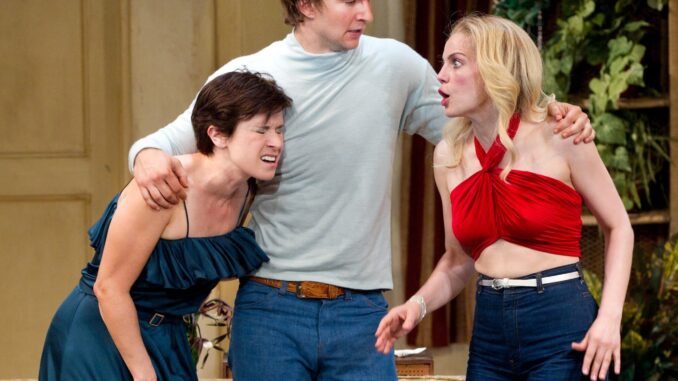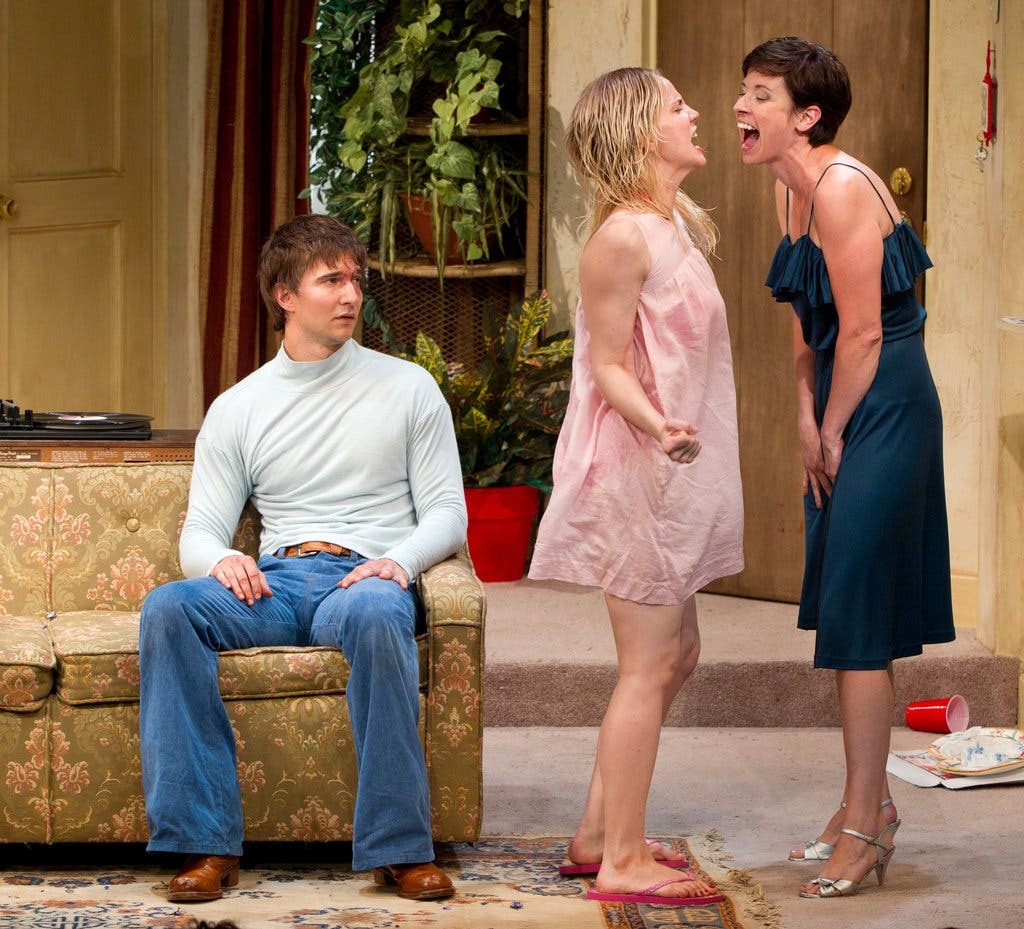
A federal judge in New York ruled Tuesday that the off-Broadway play “3C,” a darkly humorous reimagining of the hit TV series “Three’s Company,” does not infringe on the copyright of the decades-old sitcom. In her ruling, U.S. District Court Judge Loretta A. Preska wrote that the play represents a “significant departure” from the TV show, which aired from 1977 to 1984 and is still on the air.
“3C,” written by David Adjmi, ran for two months at the Rattlestick Playwrights Theater in 2012, when it opened to mixed reviews. Adjmi said he received a cease-and-desist letter from DLT Entertainment, which holds the copyright to “Three’s Company,” on opening night. While Rattlestick has continued, the play has been delayed: Mr. Adjmi said he cannot license other works or publish the script in a collection of his works because of the threat of litigation.
After negotiations failed, Mr. Adjmi decided to take DLT to court, with free representation, last year. “My lawyers said the only way to make any progress was to sue them,” he said in an interview from Rome, where he is on a fellowship. “I thought, Oh my gosh, that seems really extreme, and I was a little scared. But I didn’t want this to be in limbo forever.”

“Three’s Company” stars Suzanne Somers and Joyce DeWitt as roommates, and John Ritter, who pretends to be gay to move in with them. “3C” follows a similar outline—a trio of roommates, nosy neighbors, and ’70s hairstyles are also staples on stage—but the comedic elements are mixed with profanity and sexual situations that would never have made it onto broadcast television.
In a 56-page ruling, Judge Preska decided that while the play lifted a significant amount of material from “Three’s Company,” it was also a “highly transformative parody of the television series” and represented a significant enough change to pose “little risk to the marketplace of the original.”
With lawyers for the copyright holder pointing to similarities between “3C” and specific moments in “Three’s Company,” the final ruling included detailed synopses of seven episodes of the series—a legal twist on what has become a modern genre for entertainment news outfits. (An exchange from the first episode was described as “more lighthearted than serious, full of laughter.”)
In a statement released Wednesday, Donald Taffner Jr., chairman of DLT Entertainment, said the company was “surprised and disappointed by the ruling” and would “reconsider its options.”
“The decision was made without discovery and without the court having the benefit of seeing the play, whether live or on tape,” he added.
Robert A. Jacobs, a partner at Manatt, Phelps & Phillips, said the ruling “shows the continued evolution of the courts in being comfortable with fair use and recognizing it.” However, he added, “It will not resonate as a seismic shift on these issues.”
Editor’s Picks
Best of the Rest: Ranking Your Favorite 21st-Century Genre Films
British Summer Desserts Don’t Have to Be Perfect
What Makes Great? New Research Offers a Clue
Mr Adjmi said he felt vindicated and hoped his script would be published in an anthology published by Theatre Communications Group, which has released several of his other works. As for the others, he was still unsure.
“Nobody has actually read it, because we have to discourage even talking about it,” he said.
“I care very much about my work,” he added. “To be told that I don’t own my own work is problematic for me and it hurts.”
